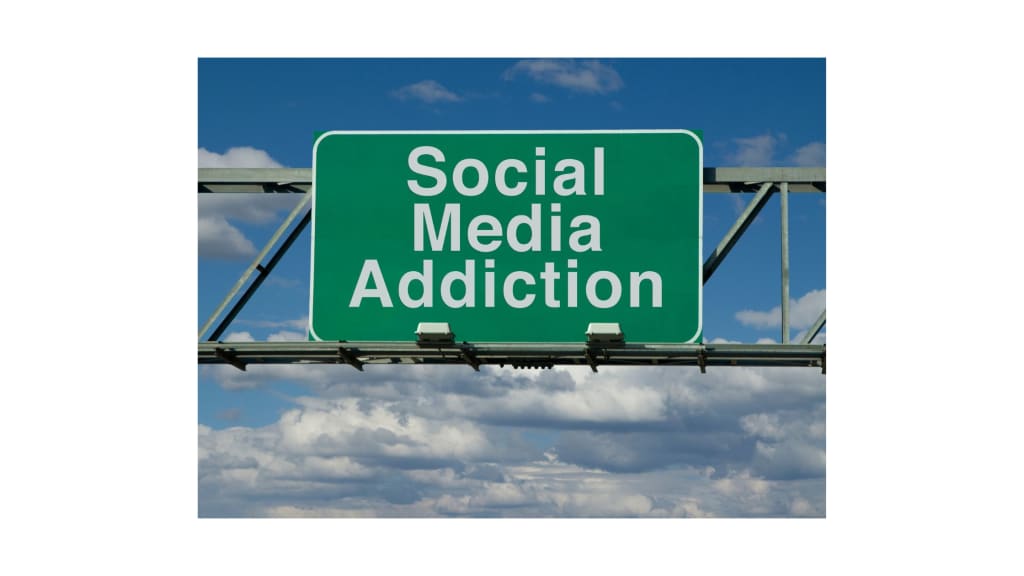Social media addiction facts among teenager
Self-discipline is the best remedy for it.

What is social media addiction?
Most of us use social media to know about people worldwide. Some use it constructively, but a few percent of users have recently become addicted to social media. A compulsive time spent on social media in a day is social media addiction. Frequently checking messages and notifications is tempting to become addicted. A fascinating social media addiction fact is that your brain cannot distinguish between your social media page and drug use; it releases dopamine when you are happy.
Social media addiction is similar to drug addiction: When you consume a substance, dopamine is released in the brain, creating a specific type of pleasure in the body. The same pleasure occurs when a social media addict receives a "like," "share," or "retweet" for their photo or statement on Facebook, Instagram, or other social media platforms.
Social media addiction facts- how it changes your brain?
When a person becomes addicted to social media, it simultaneously affects their physical and mental health. As mentioned earlier, dopamine is released, which creates a type of arousal. This positive reinforcement is linked to the brain if you receive a reward or a positive comment for a post or photo. Whenever the same thing happens, the dopamine level increases, the moment of pleasure is enjoyed, and you become addicted.
Another interesting fact about social media addicts is that they think most of the time about themselves alone, like how to showcase their photos, trips, accomplishments, and life moments to everybody. After posting on social media platforms, they need an immediate reward from known or unknown persons. This, again, changes the chemical pathway in the brain.
Psychologically, spending most of your time alone in the virtual world means you are addicted to these social networking sites. Later this leads to loneliness, anxiety and depression. In the earlier stage, they will think of social media as a coping mechanism to release their stress, but later on, when they are not rewarded as expected will lead to mental problems.
Relationship between Social media addiction and academic performance
Social media addiction creates a negative effect on academic performance all over the world. Significantly, it has increased after the COVID lockdown due to boredom and school holidays. Most students use it for making friends, chatting, and other entertainment purposes, but social media can also be used for academics. In this internet era, a student must use online platforms to learn, but it is an individual's job to use them properly. A recent study proved male students are more addicted to social media than female students.
5 common personality traits of social media addiction
Less openness to experience
Generally, openness to experience means letting someone express their feelings and share their thoughts. A thirst for knowledge and attaining it is also a behavior of openness. Still, in the case of social media addiction, they like to live in the virtual world, and they always look for likes and rewards for their accomplishments. They don't like to hear others' thoughts while spending most of their time with their thoughts.
Agreeableness
Agreeableness is a trait of helping another person above their own need. When people become addicted to social media, they become less agreeable as they interact less with the person. They spend most of their time in front of the system, so their interaction and agreeableness will be less.
Extroversion
Research says social media-addicted persons are highly extroverted as they like to socialize with people in the virtual world.
Conscientiousness
Conscientiousness means to do one's work with full conscience and to complete it thoroughly and willingly. In the case of social media addiction, conscientiousness will be low. They will be unwilling to drive themselves to achieve their goals. Self–liking is a prominent characteristic found in socially media-addicted persons. They like to get rewards for their accomplishments in the virtual world but being willing to work towards their goal will be less.
More neurotic
Neurotic persons tend to be more depressed and have a high level of anger, guilt, envy and fear of losing a relationship. Social media is all about maintaining relationships, and when they face any problem, they will become more neurotic. Generally, negative comments and trolling have to be experienced on social media, and addicted individuals become more anxious because of their poor coping abilities.
Find out social media addiction facts and overcome them.
• Quit social media
• Turn off notifications and keep away from your mobile as much as possible
• Limit your screen time
• Create new friends offline
• Develop a new hobby to spend your time
• Give less importance to social media appearance
• If you fail to do all these and cannot do so, it is better to get counseling from doctors before it worsens.
The Bottom Line
Finally, healerzen wants to conclude that social media is significant in every individual's life, so it must be avoided. It helps to learn and improve in academic and professional ways. It is the sole responsibility to handle it without creating any complications in life. Self-discipline is the best remedy for it. Break the image of social media appearance as it is virtual and understand the reality.
Enjoy getting rewarded in the real world and from loved ones in real-time. Social media is a way to showcase your life moments with close ones who are far away, but this should be optional at any cost. Relationships must be maintained with true love and should not be developed by posting or commenting on your posts on a public platform. If you are changing your actual life decision for social media, then it is a warning sign of getting addicted to it. Detach yourself from it and enjoy living your life. I hope this article is helpful to you.
About the Creator
Enjoyed the story? Support the Creator.
Subscribe for free to receive all their stories in your feed. You could also pledge your support or give them a one-off tip, letting them know you appreciate their work.





Comments
There are no comments for this story
Be the first to respond and start the conversation.